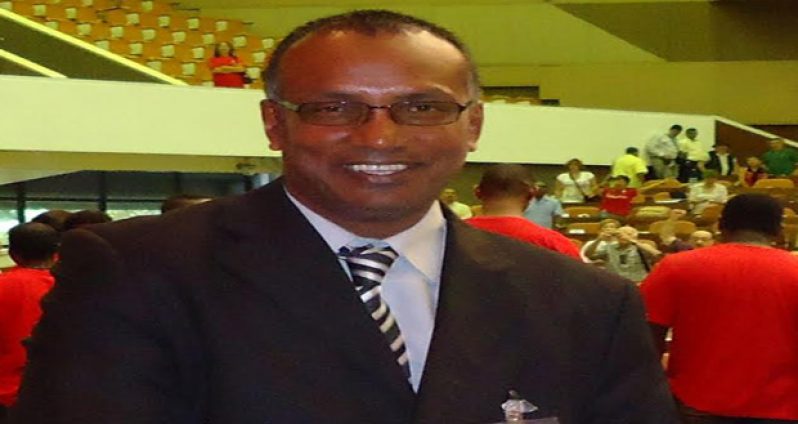THE resumption of diplomatic relations between Cuba and the United States has signaled a historic milestone in the official thaw that President Barack Obama set in motion last year as the United States reopened its six-story embassy in Havana on Monday, and Cuba raised a flag outside its own stately embassy in Washington, according to President of the Guyana Cuba Solidarity Movement (GCSM), Haleem Khan.Underscoring the culmination of months of negotiations to overcome decades of enmity, Khan said Cuba is still rallying against the United States’ travel restrictions, trade embargo and presence at the military base at Guantánamo Bay.
The GCSM President noted that even with continuing friction, the reopening of embassies in each other’s capitals provided the most concrete symbols yet of what has been achieved after more than two years of negotiations between governments that had long shunned each other.
“Obama has long pushed for the rapprochement with the Caribbean island and was the driving force behind months of secret talks with Havana that, with the support of Pope Francis, paved the way for the resumption of diplomatic relations,” Khan posited.
The official events to inaugurate the American Embassy will not take place until later in the summer, when Secretary of State John Kerry plans to visit, to formally raise the flag and install new signs.
Both supporters and critics of the new relationship have expressed deep concerns over the Cuban Government’s human rights record and repression of religious freedom. The White House has pledged to continue to push for greater respect for human rights in Cuba, and Secretary Kerry acknowledged at Monday’s press conference that he discussed the problems of human rights and trafficking with Rodriguez.
According to the U.S. Commission on International Religious Freedom, the Cuban Government still has a strong grip upon the practice of religion in the country, requiring all churches to officially register with the state’s Ministry of Justice and regulating the travel of foreign religious guests. Human rights activists are banned from active participation in religion.
The opening of the embassies is but one-step in the process of strengthening the relationship between the two countries, the White House has maintained. The U.S. removed Cuba from the State Department’s state sponsors of terror list in May, and President Obama personally met with Raul Castro at the Summit of the Americas, which was the first in-person meeting of American and Cuban leaders since the diplomatic ties were severed.




.png)









